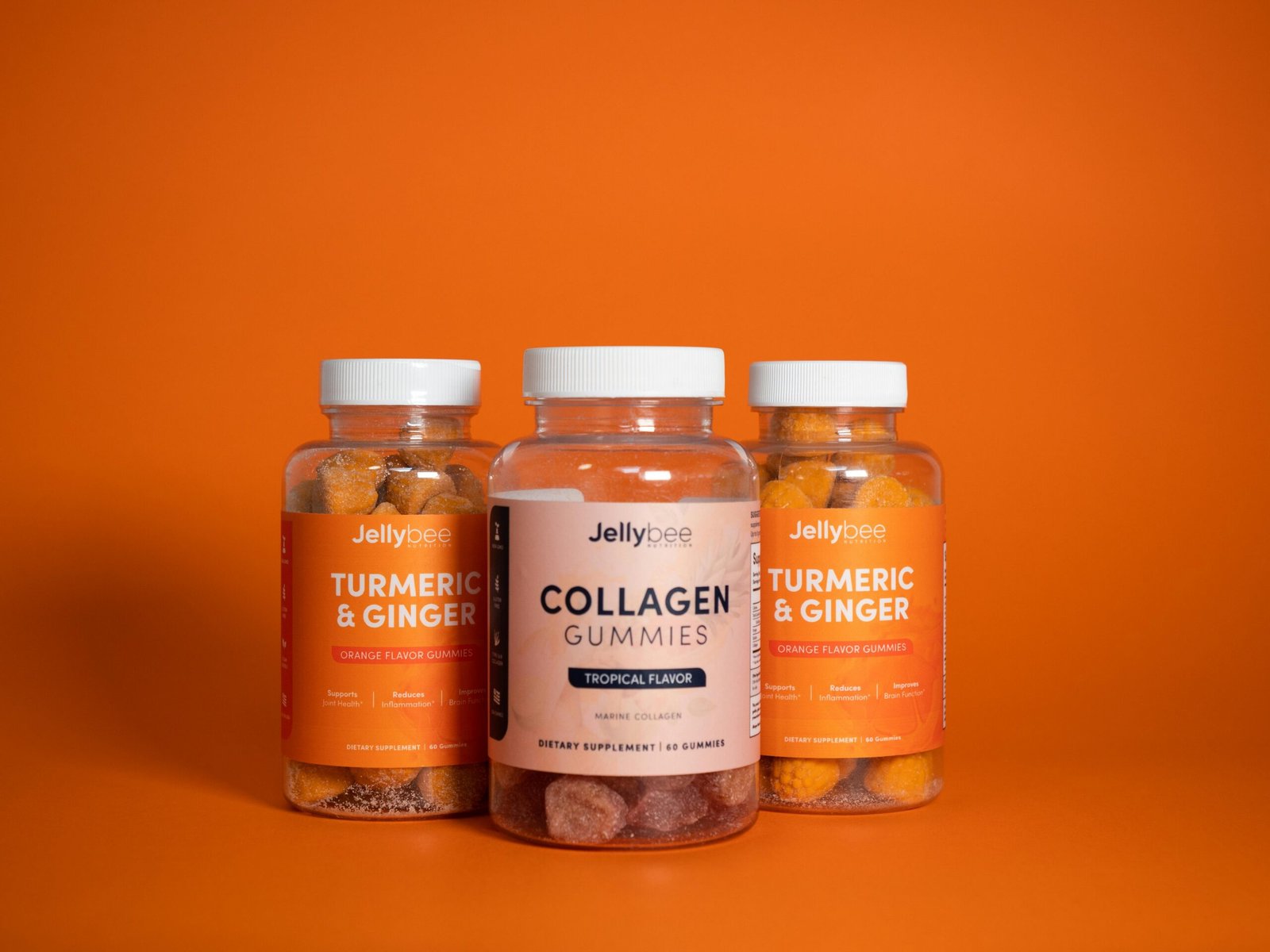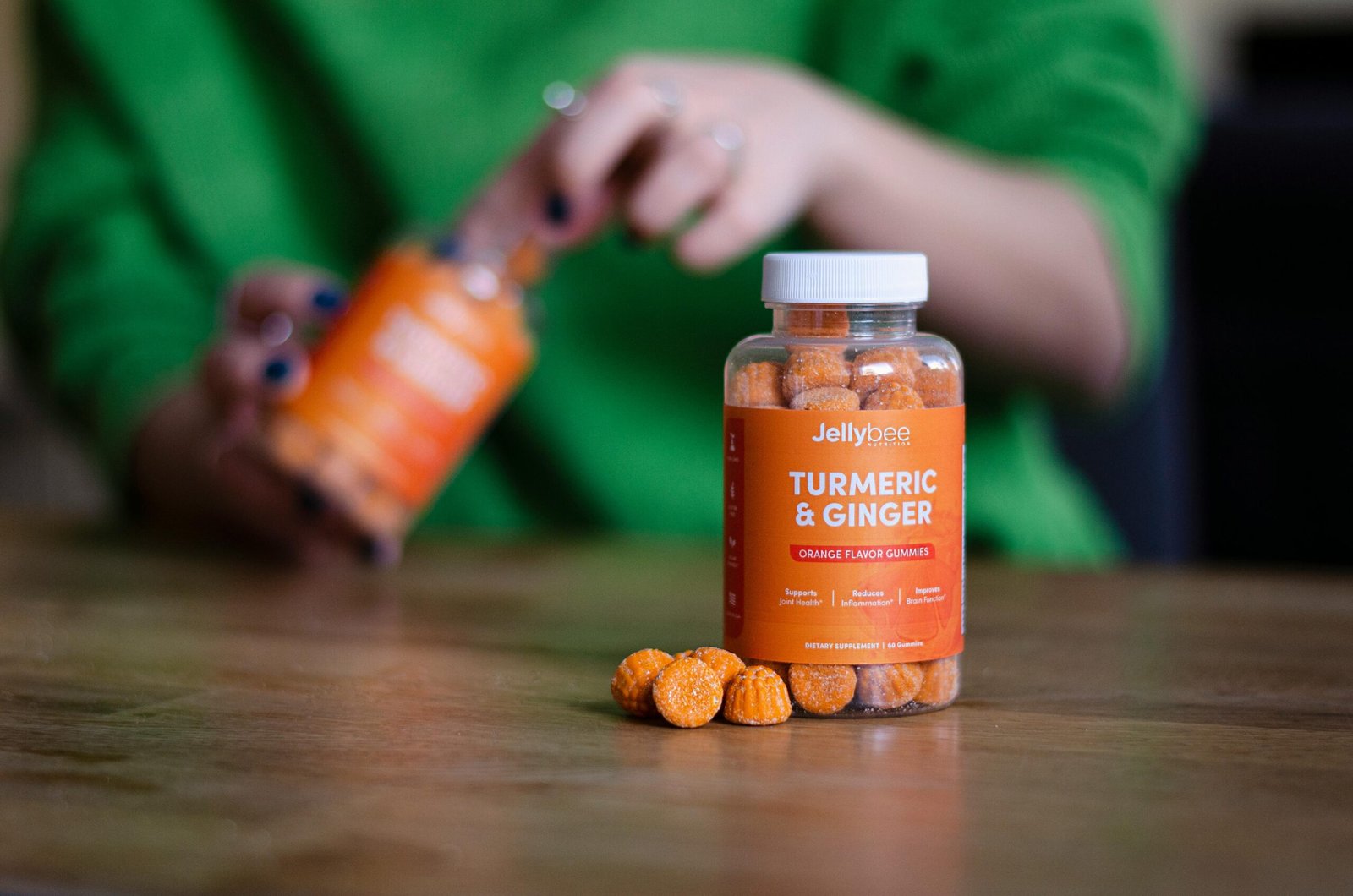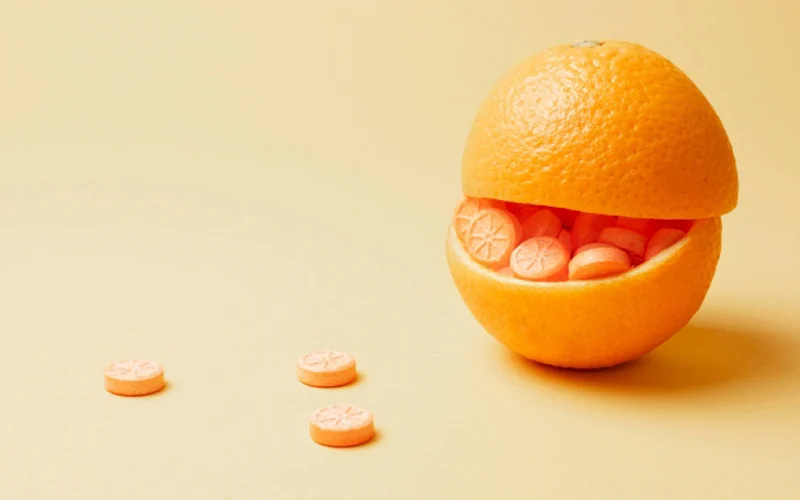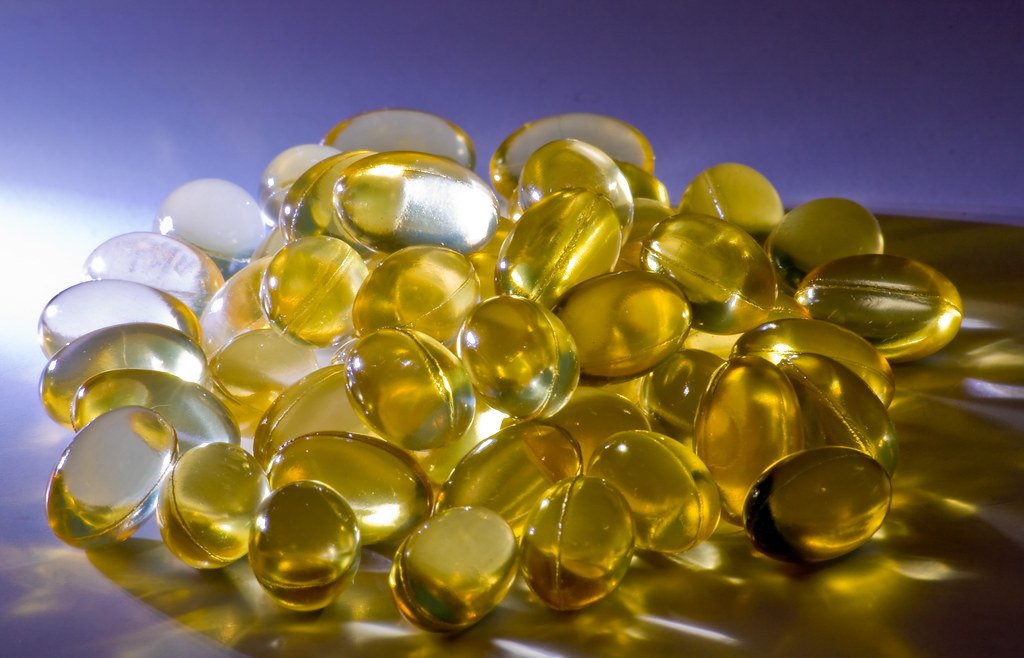Table of Contents
ToggleIntroduction to Nutritional Supplements list
Nutritional supplements play a significant role in maintaining the health and well-being of life along with plenty of energy at all points. With time, the requirements of the body change, and sometimes the foods that a person consumes will not be sufficient to provide all that is needed.
Nutritional supplements have all the vitamins, minerals, amino acids, fatty acids, and other nutrients the body needs to perform best. If you wish to remain fit, boost your energy levels, support mental clarity, or simply avoid defici supplements can often become part of a well-rounded health routine.
- The following section describes some of the nutritional supplements that will assist your body with health at every age. From boosting your immune system to providing you with an active joint life and helping improve your cognitive function, there is a wide variety of supplements that will be beneficial to everyone regardless of age or lifestyle.
Importance of Nutrition for Life
Good nutrition is essential for life. Nutrition is the basis of good health and the provision of the body with nutrients that will keep it functioning. Nutrition impacts all areas of your life, whether it’s energy and the immune system, the healthiness of your skin, the clarity of your thoughts, or even healing from an injury or sickness.
Today’s diets, however, do not comprise much of the essential vitamins and minerals a body requires to thrive. This is where nutritional supplements come in.
This is where supplements can help fill the gap regarding our nutritional intake. Supplements are designed to fill any gaps in our diets, particularly those linked to dietary methods. You might not be getting all the nutrients that you need through your diet due to several poor food-related habits or specific dietary restrictions.
Supplements can prove to be of great value even though your diet is excellent when used as a supporting mechanism, especially when food alone does not provide enough nutrition.
Essential Nutrients and Supplements for Life
These are some of the nutrients that play a crucial role in providing some of the most vital benefits to your body at various stages of life:
- Vitamins and Minerals Vitamins and minerals are the lifeline of the body. They enable energy production right up to boosting the immune system and maintaining bones amongst other functions. B Vitamins, along with other necessary vitamins A, C, D, E, and K, are the backbone of a well-built healthy body. Notably, calcium, magnesium, iron, and zinc are also crucial minerals.
- Vitamin D is sometimes called the “sunshine vitamin.” Vitamin D helps keep bones healthy, aids in supporting the immune system, and can help regulate your mood. Many people, especially those living without ready access to sunlight, may require supplementation with Vitamin D to achieve a proper level.
- Calcium and Magnesium: These two minerals are complementary for overall bone and muscular structure. It is necessary to maintain adequate amounts, especially now that you have reached middle age when bones start losing density.
Vitamin C: Vitamin C is an antioxidant that helps to aid the immune system and healthy skin. It also boosts iron absorption from plant foods.
- Vitamins: B vitamins are important in the production of energy since they maintain the health of the brain and ensure proper cell formation of red blood cells. Taking supplements with B vitamins can prove more effective if your body is under tension or showing signs of feeling weak.
- Omega-3 Fatty Acids Omega-3 fatty acids, primarily consisting of EPA and DHA, aid in maintaining healthy hearts and promote brain function and anti-inflammatory functions. Healthy fats are contained in fish oil and algae-based supplements. Omega-3s help decrease levels of triglycerides, lessen heart disease risk, and support brain health, which rises with age.
- Protein is an essential nutrient that helps in improving muscle repair, immune function, and overall health. In the human body, the requirements of proteins increase with age and most individuals fail to produce sufficient amounts, thereby necessitating supplementation of proteins. Gaps in protein are filled through the use of whey protein, casein, and even plant-based alternatives such as pea and hemp protein to meet daily demands.
Overall health is associated with a healthy gut. The probiotics supplement supplies beneficial bacteria for intestinal health. The side benefits have also included improved immune function, mental health, and even healthy skin. A person who has gone through antibiotic use or has specific digestive disorders, such as bloating or constipation, may benefit from probiotic supplements.
Supplements for Vitality and Longevity
Coenzyme Q10 CoQ10 is a potent antioxidant that helps promote energy in the cells of the body. Since CoQ10’s level decreases with age, we do experience fatigue and low stamina. CoQ10 supplementation supports energy, and heart health, and reduces oxidative damage.
- Collagen is essentially the most abundant protein in the human body. It regulates elasticity in the skin, joint health, and connective tissue structure.
- While we age, the production of collagen slows down, causing wrinkles, and joint pain, and reducing the elasticity of the skin. Supplements of collagen preserve healthy skin, improve flexibility within joints, and contribute to bone health.
- Turmeric Curcumin Turmeric is a compound that has quite powerful anti-inflammatory, and antioxidant properties and is found naturally inside the spice.
- Supplements of turmeric are therefore often taken to manage chronic inflammation, which can lead to arthritis, heart disease, and plenty of other health issues. It supports healthy brain functioning too and has mood-regulatory effects.
- Ashwagandha Ashwagandha is an adaptogenic herb that was traditionally used to reduce stress and promote overall well-being.
- This herb also reduces the level of cortisol, the hormone related to stress. Supplementing with ashwagandha can help decrease tension, improve mood, promote cognition, and make the supplement a good option for living with high levels of stress.
Resveratrol Resveratrol is a polyphenol found in red wine, grapes, and certain berries. Having anti-aging properties and the ability to protect the body against oxidative damage, the resveratrol enhances cardiovascular health decreases inflammation is said to cause longevity, and may even improve cognitive functions and aid in weight loss.
Brain and Cognitive Function Supplements
Maintaining brain health for overall well-being is very important, especially as we age. A decline in cognitive ability can take a toll on the quality of a person’s life and therefore deserves attention through protective measures. Several supplements are believed to boost clarity of thought, attention, and memory:
- Ginkgo Biloba Ginkgo biloba has been used for millennia to promote blood flow as well as a healthy brain. One such supposition is that it opens the blood vessels to the brain, which might allow more blood to flow through it; this is a certain way of enhancing memory, attentiveness, and the mind. Its intake is considered to be useful for stimulating better cognition in the aged or those at the beginning stages of cognitive dysfunction.
Phosphatidylserine Phosphatidylserine is a naturally occurring substance within the brain; it supports memory and cognitive functions.
As we age, the level of phosphatidylserine declines, which results in memory loss and decreased mental acuity. Supplementing phosphatidylserine levels might help to either maintain or improve memory, enhance clarity of thinking, and also prevent cognitive decline.
Lion’s Mane Mushroom Lion’s Mane Mushroom is a medicinal mushroom. It gives the ability to advocate the growth of nerves and protects from neurodegenerative cognitive decline
. It supports neural activity by stimulating the growth of nerve growth factor or NGF, which is required in the maintenance and growth of neurons. Supplements of Lion’s mane may boost cognitive function, memory, and mental clarity.
Immune System Supplements
A good immune system is your body’s power, which avoids infections and diseases. Some of the critical supplements to enhance your immune functionality are as follows:
Vitamin C Vitamin C is one of the best antioxidants supporting immune function while showing protection against oxidative damage. The white blood cells are produced by vitamin C and fight infection in your body. Supplementation of vitamin C in the diet can decrease the period of cold and overall immunity.
Zinc is an essential trace mineral that serves as a supplement to the immune system. It enhances T-cell activation and promotes the production of white blood cells. Zinc also aids in healing wounds. Zinc supplements are mainly prescribed to prevent colds and boost immune strength.
Elderberry This is an herbal supplement; it’s always used to help promote immune health. It’s been shown that elderberry supplements reduce the severity and duration of colds and flu by inhibiting viral replication. Elderberry supplements often are taken during cold and flu season to boost your immune function and prevent the illness from taking over.
1.1. Definition of Nutritional Supplements
Supplements are food products that provide the body with additional nutrients. Vitamins, minerals, proteins, and more could fall into this category. These supplements can fill in all loopholes in your diet. The supplements can fill in the missing information if someone needs more fruits or vegetables. Supplements often come in pill, powder, and even liquid forms. They are not here to replace food but to add nutrients that need improvement.
1.2. Primary Forms of Nutritional Supplements
Nutritional supplements exist in numerous forms. Multivitamins, protein powders, and fish oils are some of the most popular. Vitamins, such as Vitamin C or Vitamin D, are primarily consumed to boost health. Minerals, such as calcium or magnesium, promote bone strengthening. Protein supplements build muscles and help with muscle growth. Fish oils contain omega-3 fatty acids, which are beneficial for the heart.
1.3. Purpose of Nutritional Supplements
The primary purpose of nutritional supplements is to enhance health. They can help you achieve nutrients that your diet may lack. Some supplements also increase energy levels, improve digestive action, and help grow muscles. This enhances the immune system’s strength, which may improve the skin’s health. Nutritional supplements can be used for general well-being, athletic performance, or health concerns.
Why Use Nutritional Supplements?
2.1. To Fill Nutrient Gaps
Some essential nutrients may not be included in your diet. This could be due to poor food choices or an overly restrictive diet. Nutritional supplements are an excellent supplement to fill in such voids. For example, those without a dairy-rich diet require calcium for healthy bones. A vegetarian might require B12 supplements to get the naturally occurring nutrient in animal products. Nutritional supplements will give you all that you need.
2.2. Improve Your Health
Nutritional supplementation promotes general health. Vitamin C boosts the immune system, and omega-3 fatty acids from fish oils help improve heart health. Taking the right dietary supplement can give you more energy and make you feel upbeat. It also maintains normal body function and prevents deficiencies.
2.3. For Specific Purposes
Nutritional supplements can help with fitness or health goals. For example, athletes take protein supplements to develop muscles. Supplements such as collagen can enhance healthy skin. Some people consume nutritional supplements for hair growth or weight loss. Other people use them to improve sleep or joint health.
Types of Nutritional Supplements
3.1. Vitamins
Vitamins are the most common form of nutritional supplements. There are many vitamins, such as Vitamins A, C, D, and E. Each vitamin has its health benefits. For instance, Vitamin C can support the immune system, while Vitamin D benefits bone health. Vitamins are available in pills or gummies.
3.2. Minerals
Supplements also contain other minerals, including calcium, magnesium, and iron. These minerals are vital to human health but are often lacking in many diets. Calcium is essential to bones and teeth. Magnesium aids in the relaxation and functioning of muscles. Iron assists in red blood cell production. People whose diet isn’t sufficient in some of these minerals may look toward supplements for additional help.
3.3. Proteins and Amino Acids
One critical supplement used by athletes and bodybuilders is protein. Protein helps build muscles and repair tissue. The building blocks of protein are amino acids, and supplementation can be whey protein or plant-based protein to help supply the nutrient requirements. Supplementation is used by those who use it to grow muscles or to help in the recovery process.
Vitamins as Nutritional Supplements
4.1. Vitamin A
Vitamin A supports vision and the immune system. Food sources include carrots and sweet potatoes. A supplement will suffice if you can’t get enough Vitamin A through food. There are pill and gummy forms for ease of use.
4.2. Vitamin C
Vitamin C is needed for immune function. It also helps keep infections at bay and, at its best, ensures healthy skin. Good sources include citrus fruits, but people often take Vitamin C supplements for an added impetus. There are numerous formulations, from chewable to powders.
4.3. Vitamin D
Vitamin D for healthy bones. The vitamin increases the human body’s ability to absorb calcium. Although individuals get Vitamin D from the sun, there are instances when supplements are required. People with the least exposure to the sun because they live in regions with low sunlight conditions or rarely venture into the sunlight will need a vitamin D supplement.
Minerals in Nutritional Supplements
5.1. Calcium
Calcium is a mineral that helps maintain strong bones and healthy teeth. It’s crucial for children who grow in size and older adults who age together with their bones. Calcium can be found in dairy products, but most people require supplements for this mineral.
Calcium supplement promotes bone density.
5.2. Magnesium
Magnesium contributes to muscle activity and relaxation and affects the nervous system. For many, supplementation helps improve sleep quality and prevent muscle cramping. Spinach and nuts are considered rich in magnesium, although supplements would likely be needed if a deficiency exists.
5.3. Iron
Iron is an essential nutrient for blood. It is a critical component of the protein hemoglobin, which resides in red blood cells and carries oxygen to all body parts. Lack of sufficient iron may result in weakness and fatigue. Supplementing with iron can enhance energy in those who have iron deficiency.
Popular Protein Supplements
6.1. Whey Protein
Whey may be the most popular protein supplement: whey is a fast-digesting protein that supports muscle repair after an exercise session. Whey is a milk product and is rich in essential amino acids. A popular supplement for athletes to enhance muscle-building and recovery processes, this article discusses several forms of plant-based proteins, such as pea, hemp, brown rice, and potato proteins.
6.2 Plant-Based Proteins
Plant-based proteins can prove a good alternative for people who do not consume milk. Such proteins are derived from different sources, including peas, hemp, and soy. They offer diverse amino acids that suit people who might be expected to gain muscle tissue. Some have softer assimilation in the human body.
6.3. Collagen Protein
Collagen protein is increasingly needed for healthy joints, skin elasticity, and hair growth. It supports the connective tissues of the body and hydrates the skin. The powder form of collagen is added to beverages and smoothies.
Supplements of Amino Acids
7.1. What are Amino Acids?
Amino acids are the constituents of proteins. They are essential for building and repairing muscles. The human body can synthesize some amino acids; others, known as essential amino acids, must be supplied through diet. Amino acid supplements have gained popularity to improve athletic performance and facilitate recovery after exercise.
7.2. Benefits of amino acid supplements
Amino acid supplements enhance muscle recovery and lessen soreness after training. They ensure endurance during exercise and improve general performance. Many athletes use amino acids, such as B.C.A.A.s, to fuel their muscles and accelerate recovery. Amino acid supplements may also help with fat loss and prevent the loss of muscle mass.
7.3. Commonly used Amino Acid Supplements
Generally, B.C.A.A.s, L-glutamine, and L-carnitine are the most prevalent amino acid supplements. B.C.A.A.s represent leucine, isoleucine, and valine, which contribute to muscle protein synthesis. L-glutamine is used explicitly for gut health and recovery. L-carnitine helps in the metabolic rate of fats and the energy supply; thus, it also gained popularity in weight management.
Essential Fatty Acid Supplements
8.1. What Are Essential Fatty Acids?
Essential fatty acids are fats that the body cannot synthesize and thus must be derived from diet or supplements. There are two types of essential fatty acids: Omega-3 and Omega-6. Omega-3 fatty acids in fish oil are especially beneficial to the heart and have anti-inflammatory effects.
8.2. Benefits of Omega-3 Supplements
Omega-3 fatty acid supplements are widely used to support heart health. They have been demonstrated to decrease triglycerides, reduce blood pressure, and thus reduce heart disease risk. Omega-3s are also beneficial for brain functioning, helping with depression and anxiety, for example. They are crucial in reducing inflammation within the body.
8.3 Sources of Omega-3 Fatty Acids
Fish oils are the most common source of Omega-3. However, there are other sources: flaxseeds, chia seeds, and walnuts. In most cases, people use fish oil supplements because they are the richest source of E.P.A. and D.H.A., two primary Omega-3s that offer significant health benefits. For those who do not take fish, plant-based Omega-3 supplements are also available.
Herbal Nutritional Supplements
9.1. What Are Herbal Supplements?
Herbal nutritional supplements are plant-based and absorbed for their medicinal value. For many years, herbal remedies have been used in traditional practice. Most herbal supplements are said to promote general health or help cure diseases. Examples include ginseng, echinacea, and turmeric.
Herbal supplements are the natural way to improve health. They boost digestion and energy levels and lower blood pressure, among other things. For example, ginseng is used to increase energy levels and eliminate exhaustion. Curcumin, mainly from turmeric, is anti-inflammatory and is used chiefly for joint pains.
9.3. Most Common Herbal Supplements
One well-known herbal supplement is echinacea, which is used for immuno-supportive purposes. Ginkgo biloba is used for brain support, and valerian root is for sleep support. Among other popular herbs, there are also stress-reducing herbs such as ashwagandha and St. John’s wort. Different herbal supplements are available in various forms, such as capsules, teas, and tinctures.
Probiotic Nutritional Supplements
10.1. What Are Probiotics?
Probiotics are live bacteria and yeast, which are gut-friendly bacteria. Probiotics help maintain balance in your gut microbiome. A healthy gut microbiome enables your ability to digest, immune system function, and general well-being. Probiotic supplements are a strain of good bacteria that contribute to digestive health.
10.2. The Benefits of Probiotic Supplements
Probiotics ensure the correct gut flora, which may improve digestion, reduce bloating, or relieve constipation. Some research says that probiotics help people avoid infections, support their immune system, and even cure mental health issues. Some use them to cure or prevent conditions like I.B.S. or diarrhea.
10.3. Sources of Probiotics
Examples of fermented foods are yogurts, kefirs, sauerkraut, and kimchi. Sometimes, probiotic supplements are taken to get a higher dosing of probiotics or good bacteria. These can be offered in capsule, tablet, powder, or liquid form. These are the most significant beneficial strains of bacteria available for gut health.
Fiber Supplements for Gut Health
11.1. What Is Fiber?
Fibre is a carbohydrate the human body cannot use for absorption. It plays a vital role in proper digestion in the bowels. There are two types of fiber: soluble and insoluble. Soluble fiber dissolves in water and reduces cholesterol, whereas insoluble helps to remove food through the digestive system. A fiber supplement allows a person to reach the fiber they need daily.
11.2. Benefits of Fiber Supplements
Fibre enhances digestion and prevents constipation. It also regulates blood sugar and prevents heart disease. Soluble fiber reduces cholesterol levels, while insoluble fiber promotes regular bowel movements. Supplements are recommended for those who receive little from food.
11.3. Common Fiber Supplements
Joint fiber supplements include Psyllium husk, inulin, and methylcellulose. Psyllium is typically used to treat constipation and help with regularity. Inulin is a prebiotic fiber that helps the intestines. Methylcellulose is a non-fermentable fiber that prevents constipation without causing bloating.
Supplements for Immune Health
12.1. Vitamin C and Immune Health
Vitamin C is another joint dietary supplement for enhancing immune function. It accelerates the production of white blood cells, one of the principal activities in fighting infections. Vitamin C is also an antioxidant that protects cells against damage. Many use Vitamin C supplements to prevent getting sick during the flu and cold season.
12.2. Zinc and Immune Function
Zinc is another crucial mineral for immunological wellness. It is an essential mineral that forms immune cells and helps the body fight off infections. Zinc supplements are often used to combat common colds and prevent illness. They will mainly be helpful to this group of participants, as they are deficient in zinc.
12.3. Echinacea for Immunity
The most popular herbal supplement is echinacea. It is known to induce the production of white blood cells and protect the body from infections; hence, people take it in advance to prevent colds and flu when they hit.
Supplements for Strong Bones
13.1. Calcium for Stronger Bones
Calcium is the most vital mineral when bone health issues are at stake. It helps preserve the strength of bones, and it also helps prevent the disease osteoporosis. Calcium supplements are prescribed more often for those at risk of bone loss; one of these groups consists of elderly patients: they help prevent osteoporosis and further the strengthening of bones without breaks.
13.2. Vitamin D and Bone Health
Vitamin D aids in the absorption of calcium. If Vitamin D is lacking, the body will also not absorb much calcium, which can lead to bone weakening. Mineral supplements that contain Vitamin D are usually prescribed along with calcium to support the buildup of bone strength and prevent fractures.
13.3. Magnesium and Bone Strength
Another mineral that is essential for bone health is magnesium. It activates the Vitamin D present in the body and favors calcium absorption. Magnesium regulates the formation of bones. Individuals predisposed to osteoporosis may take magnesium supplements, calcium, and Vitamin D for healthier bones.
Brain Health Supplements
14.1. Omega-3 Fatty Acids for Cognitive Function
Omega-3 fatty acids are also vital for the brain. This supplement continues to enhance cognitive function, memory, and concentration. Omega-3 supplements are constantly utilized to aid brain health and prevent mental decline. D.H.A. is one of the beneficial types of Omega-3, ensuring that the structure and functions of the brain are maintained.
14.2 Ginkgo Biloba for Mental Clarity
Ginkgo biloba is an herbal supplement famous for its cognitive benefits. People use it to improve memory, attention, and general clarity of thinking. Scientists believe that ginkgo helps improve the blood circulation process inside the brain by reducing oxidative stress. This is another reason many people take this supplement to boost their brain power.
14.3. B Vitamins for the Brain
Some B vitamins are essential for the nervous system’s well-being: B6, B9 (folic acid), and B12. They maintain a supply to the nervous system, improving memory and mood. Supplements in the form of B vitamins are primarily recommended in cases of their deficiency. Such a state can lead to mental fatigue and poor concentration.
Dietary supplements for athletes
15.1. Protein supplements for muscle building
To be an athlete, ensure that you consume protein supplements, which are meant to be consumed in excellent quantities after strenuous workouts. Protein helps heal torn muscles caused by exercise. The three most practiced proteins include whey protein, casein, and plant-based proteins like pea protein. Protein supplements help athletes recover faster and build muscle mass while improving performance.
15.2 Creatine Supplements for Strength
Creatine is another trendy supplement that most athletes use, particularly those who engage in highly intense activities like sprinting or weightlifting. Creatine replenishes ATP stores, which are a muscle’s energy reserve when it has to perform short, intense efforts. It enhances strength and endurance, enabling athletes to perform better, recover, and train harder.
15.3. Electrolyte Supplements Hydration
Electrolyte supplements are essential for athletes because they help maintain hydration and prevent muscle cramps. Electrolytes consist of three types: sodium, potassium, and magnesium, which are necessary elements for fluid balance maintenance. During workout sessions, the body secretes all these minerals in sweat and needs supplements to replenish them, guaranteeing perfect hydration and performance.
Muscle Building Supplements
16.1. Protein and Muscle Growth.
Protein is a fundamental nutrient for building muscles. During exercise, the muscles undergo tension stress, and proteins play a crucial role in repairing the muscle fibers in the body, making them stronger and more prominent. Professional athletes and bodybuilders also use protein supplements like whey or casein for more proteins for recovery and growth.
16.2. Branched-Chain Amino Acids (B.C.A.A.s) for Muscle Recovery
Among them, branched-chain amino acids consist of leucine, isoleucine, and valine. These are the most essential amino acids necessary for muscle protein synthesis and muscle repair. Consuming B.C.A.A. supplements will reduce muscle soreness and hasten recovery post-exercise.
16.3. Testosterone Boosters for Strength Gains
Testosterone boosters are those supplements that boost the production of natural testosterone in the body. Testosterone is considered one of the most essential hormones for muscle-building purposes and increasing strength. Among the advantages of taking testosterone boosters are the enhancement of muscle mass, increase in strength, and assistance in recovery. Bodybuilders and strength athletes mostly take these for optimization.
Weight Management Supplements
17.1. Fat Burners for Weight Loss
Fat burners are supplements that increase metabolism to activate fat burning in the body. They can have active ingredients such as caffeine, green tea extract, and forskolin. Appetite suppressants and boosters help people lose weight by maximizing the amount of energy spent and inducing fat oxidation when applied with a proper diet and exercise.
17.2. Appetite Suppressors for Regulation
Appetite suppressants help regulate hunger, making adhering to a diet of fewer calories easy. Most are derived from natural extracts such as garcinia cambogia or glucomannan. They increase the feeling of fullness and cause people to suppress their cravings and adhere to their weight reduction plans.
17.3. Thermogenic Supplements for Metabolism
Thermogenic supplements increase a human’s bodily temperature, subsequently increasing the metabolic rate. This can aid in the burning of fat calories, especially when exercising. Some ingredients in most thermogenic supplements include caffeine, green tea extract, and capsaicin. They are most in demand by those seeking to lose fat more rapidly.
Skin Health Supplements
18.1. Vitamin E for the Protection of the Skin
It is a powerful antioxidant that wards off oxidative stress and damage caused by UV rays and pollution in skin cells. Vitamin E supplements are, therefore, used to enhance the appearance of the skin and remove signs of aging. They moisturize and support the skin’s repair to have healthy, glowing skin.
18.2. Collagen for Skin Elasticity
Collagen supplements help improve the skin’s elasticity and firmness. Collagen is a natural protein that decreases as one ages. Supplementation with collagen may reduce wrinkles and fine lines and improve the skin’s hydration and texture.
18.3. Vitamin C for Skin Brightening
Vitamin C is an essential nutrient for the skin. Supplementation increases collagen production and can help lighten dull skin. Vitamin C supplements even protect the skin against free radicals and help minimize the appearance of dark spots and uneven tanning. Many individuals supplement themselves with Vitamin C for youthful-looking, radiant skin.
Supplements for Hair Health
19.1. Biotin for Hair Growth
Biotin, or Vitamin B7, was also shown to promote hair growth. Biotin supplements help strengthen hair growth, reduce shedding, and prevent balding. Many patients take biotin to try to prevent hair from growing thinning. Biotin also helps create keratin, a chain of proteins that makes the structure of hair more solid.
19.2. Collagen to Grow Thicker Hair
Collagen also promotes healthy skin and hair. Collagen supplements help enhance the strength and texture of hair by providing all the essential amino acids that help support hair follicles. Moreover, this supplement helps prevent hair breakage and promote healthy hair growth.
19.3. Iron for Healthy Hair
Iron is the most vital mineral for hair health. This mineral and red blood cells deliver oxygen to follicles, promoting healthy hair growth. Iron deficiency might lead to hair loss, probably the most frequent reason people begin taking iron supplements—to regain their full hair or avoid hair loss.
Supplements for Joint Health
20.1. Glucosamine for a Healthy Joint Repair
Glucosamine is a supplement used for joint health. It heals cartilage and reduces pain caused by various conditions, such as osteoarthritis. Glucosamine supplements also increase joint mobility and decrease inflammation, making them useful for those who experience joint aches.
20.2 Lubrication of Joints through Chondroitin
Chondroitin is another supplement that supports joint health by providing integrity and functionality to the cartilage structure. Glucosamine is often accompanied by chondroitin to lubricate the joint, reduce swelling, and enhance mobility. It would be very effective for older adults with joint wear and tear.
20.3 Turmeric for Joint Inflammation
Curcumin, an active compound with anti-inflammatory properties, is found in turmeric. Turmeric supplements are most commonly used to treat joint inflammation and pain, mainly due to their applicability to arthritis patients. Curcumin blocks inflammatory enzymes, creating natural relief from joint stiffness and discomfort.
Cardiac Supplements
21.1. Omega-3 Fatty Acids for Heart Protection
Omega-3 fatty acids, particularly E.P.A. and D.H.A., are also essential for the heart. They lower triglycerides, decrease blood pressure, and provide protection against heart disease. Many supplements containing omega-3, such as fish oil, benefit the heart and reduce inflammation in the cardiovascular system.
21.2. Coenzyme Q10 (CoQ10) for Heart Health
Coenzyme Q10 is an antioxidant that activates cells’ energy, protecting one’s body from oxidative stress. Thus, CoQ10 supplements are commonly used to maintain the heart, reduce blood pressure, and maintain good cardiovascular health.
21.3. Magnesium for Heart Function
Magnesium is a trace mineral that assists in the conduction of the heart’s electric activity. It helps maintain the heart’s normal rhythms and regulates high blood pressure. Magnesium is often administered as a supplement to prevent heart disease and reduce the chances of arrhythmia and hypertension.
Energy-Boosting Supplements
22.1. Caffeine for Energy and Focus
Among all the famous energy-boosting supplements, caffeine is one of the most popular. This is due to its stimulating effects on the central nervous system, making individuals more alert and focused. Caffeine supplements are typically in pill or energy drink forms, and most people resort to it for that extra boost of energy, especially during episodes of fatigue or sleep deprivation.
22.2. B Vitamins for Energy Metabolism
Other B vitamins include B12, B6, and folic acid. These vitamins are essential for building energy, allowing the body to convert food into energy and support metabolic functions. B vitamin supplements thus have properties that relieve fatigue and increase the general energy level, especially in cases of deficiency.
22.3. Ginseng for Natural Energy
Ginseng is one of the best-selling herbal dietary supplements in history. It has been used over the years to boost energy and prevent fatigue. It increases flow, enhances mental acuity, and relaxes stress. Its supplements are used to avoid tiredness and improve physical and psychological endurance.
Mood-Enhancing Supplements
23.1. St. John’s Wort for Stress Relief
St. John’s Wort is one of the more commonly used herbal supplements that have been shown to enhance moods and alleviate symptoms of depression and anxiety. Their action mechanism is to raise neurotransmitters in the brain, like serotonin. Sometimes, it is one of the treatments chosen by patients because their cases are less severe, for mild depression or anxiety.
23.2. Omega-3 Fatty Acids for Mood Support
Omega-3 fatty acids have been shown to boost mood and symptomatically treat symptoms of depression. Omega-3 supplements, especially D.H.A. and EPA-fortified ones, support the brain’s functions and overall mental well-being. These supplements are consumed mainly by people who cannot cope with mood swings, anxiety, or depression.
23.3. Vitamin D for Mood Modulation
Vitamin D plays a significant role in ensuring healthy bones while controlling mood. Deficiency of Vitamin D has been linked to depression and Seasonal Affective Disorder (S.A.D.). Vitamin D supplements help enhance the mood of individuals who have deficiencies or do not receive sunlight exposure.
Eye Health Supplements
24.1. Vitamin A for Sight
Vitamin A is necessary for maintaining good vision. It ensures the retina’s health, which is vital for clear eyesight. A Vitamin A deficiency causes vision issues, including night blindness. Vitamin A supplements promote the eye’s health, particularly in people at risk of deficiency.
24.2. Lutein and Zeaxanthin for Eye Protection
Lutein and zeaxanthin are highly concentrated antioxidants in the retina. They safeguard the eyes against oxidative stress and filter harmful blue light. Lutein and zeaxanthin supplements are generally advised frequently for age-related eye conditions such as macular degeneration and healthy vision.
24.3. Omega-3 Fatty Acids for Eye Health
Omega-3 fatty acids are especially vital, particularly D.H.A., as these are eye-friendly elements. D.H.A. is a significant constituent of the retina and maintains its functioning. Omega-3 supplements, specifically from fish oil, prevent dry eyes and aid all eyes’ functionality as a human age.
Supplements for Liver Health
25.1. Milk Thistle for Detoxification
Milk thistle: Milk thistle is an herbal supplement broadly used to support the liver. The main component is silymarin, which helps to purify the liver and protect it from toxic effects. Milk thistle supplements are mainly used to aid the functioning of the liver, especially in people facing environmental toxicity or with liver disease.
25.2 Turmeric for Liver Health
It contains curcumin, a highly potent antioxidant that inhibits inflammatory actions, can decrease liver inflammation, and helps the liver detoxify. Turmeric supplements are also widely used as adjunctive therapy to support the general health of the liver in patients suffering from fatty liver disease, other comparative and in-state diseases, and numerous other medical issues.
25.3. Dandelion Root for Liver Support
Dandelion root has been used since ancient times to support liver health. It is a natural diuretic that helps the body cleanse the liver by encouraging bile production. Supplements of dandelion root support liver functioning and help clear toxins better.
Supplements for Detoxification
26.1. Detox Teas for Cleansing
Detox teas are tea products made from herbs that may promote the body’s general detoxification processes. Examples of such teas include dandelion, ginger, and green tea. These ingredients aid in liver functions, which clean out the body of toxins. Detox teas are best for supporting digestion and reducing bloating for overall wellness.
26.2. Activated Charcoal for Detox
Activated charcoal is a supplement that removes body toxins and facilitates the natural expulsion of toxins from the body. It is commonly used in emergency medicine as a treatment for poisoning and is also available as a supplement to help people detox in general. Activated charcoal helps cleanse the digestive system and maintain health in general.
26.3. Detoxification Fiber
A dietary fiber supplement helps detox by providing regenerative bowel movements and expulsing waste material. Fibre’s soluble component binds to toxins and removes them from the body through the digestive tract. Fiber supplements such as psyllium husk are commonly used today to support natural body cleansing.
Supports for Sleep
27.1. Melatonin for Better Sleep
Melatonin is one of the hormones regulating sleep and wakefulness. Melatonin supplements are administered for better sleep quality, such as in cases of insomnia and jet lag. It helps the body feel calmer about sleeping and staying asleep by providing melatonin supplements.
27.2. Valerian Root for Sleep
Valerian root is an herbal supplement commonly used in forms and dosages that are believed to improve sleep quality and alleviate anxiety. It has natural soothing properties and aids in reducing nervous system irritability. Valerian root is often used as a natural remedy for insomnia since it helps individuals fall asleep faster and have better relaxation.
27.3. Magnesium for Sleep
Magnesium is a muscle relaxant that smooths the nervous system. It can modulate part of the body’s response to stress and promote sleep. Magnesium supplements are recommended for individuals with sleeping problems or wakefulness at night.
Supplements for Digestive Health
28.1. Probiotics for Gut Health
Probiotics are live bacteria that help maintain a healthy balance of gut flora. Beneficial bacteria are crucial in digestion, immunity, and overall health. Supplements containing probiotics can restore the balance of gut bacteria, reduce bloating, and improve digestion, particularly after antibiotic use.
28.2 Digestive Enzymes for Better Digestion
Digestive enzymes are additional ingredients that contain digestive enzymes. They break down food components to enhance nutrient absorption. They digest proteins, fats, and carbohydrates. Digestive conditions, such as bloating or indigestion, often lead people to use digestive enzyme supplements to supplement their digestive systems.
28.3. Fiber for Digestive Health
Regarding digestive health, fibers help regulate bowel movements and prevent constipation. It also feeds beneficial bacteria that fuel the gut microbiome. Popular fibre supplements, such as those usually taken for good digestion and to avoid gastrointestinal discomfort, include Psyllium and inulin.
Supplements for Stress Relief
29.1. Ashwagandha for Stress Reduction
Ashwagandha is an adaptogenic plant that is administered to reduce stress and anxiety levels. Its supplements support the human body in gaining equilibrium with cortisol, a hormone associated with stress. Ashwagandha supplements are administered by individuals seeking to lower their stress levels, enhance their moods, and maintain their well-being.
29.2. L-Theanine for Serenity
L-theanine is an amino acid that occurs naturally in the green tea plant and contributes to the relaxation process without falling asleep. It also reduces anxiety and improves attentiveness and clarity of mental thinking. The intake of L-theanine supplements is usual in cases of calmness enhancement or during weeks of workdays during stressful times.
29.3. Rhodiola Rosea for Stress and Fatigue
Rhodiola rosea is an adaptogen that helps one overcome fatigue and stress. It generally improves energy and enhances mental performance, mood, and other benefits. Rhodiola supplements are mainly used for increasing endurance, stress reduction, and fighting burnout.
General Health and Wellness Supplements
30.1. Multivitamin for General Health
Multivitamins are supplements that carry the necessary vitamins and minerals in one preparation. They are most commonly used to fill gaps in a diet, ensuring that the body gets all the required nutrients at the best of health. Multivitamins are mainly utilized for well-being, energy enhancement, and improving immune function.
30.2. Coenzyme Q10 for Energy and Antioxidant Support
CoQ10 is an antioxidant that yields energy to energize cellular functions. It protects cells from oxidative damage and supports heart health. The primary reason for using CoQ10 supplements is to provide energy to boost exercise performance and healthy aging.
30.3. Spirulina – Nutrient Dense
Spirulina is a type of blue-green algae that contains a wealth of nutrient-rich compounds, such as protein, vitamins, and minerals. It is considered a vital supplement that contributes to a healthy energy level. Most often used by vegetarians and vegans, spirulina has gained popularity over the years due to its high nutrient density and rich protein content.
Conclusion: The Worth of Nutritional Supplements
Nutritional supplements offer an easy yet efficient way of guaranteeing our bodies are fully nourished to function at peak efficiency in today’s busy society, where dietary ways of life often fail because our lifestyles leave us pressured and without time to make good food choices.
Although supplements cannot replace a well-balanced diet rich in nutrients, their significance is evident when it comes to filling gaps and general health and well-being.
Whether it be improving energy levels, reinforcing the immunity system, or even aiding in muscle building or heart health, nutritional supplements provide the right way towards wellness in a person’s life.
Among the many benefits of nutritional supplements, perhaps the primary advantage is that they are easy to use. With a hectic lifestyle, it is almost impossible for many to prepare healthy and well-balanced meals each day.
Supplements, whether a vitamin supplement mineral supplement, or herbal extract that falls in the same, make it easy to ensure we are getting the nutrients our bodies need each day without having to spend hours planning and preparing meals.
For those with busy schedules, supplements can be a simple and effective approach to staying on track with health goals.









